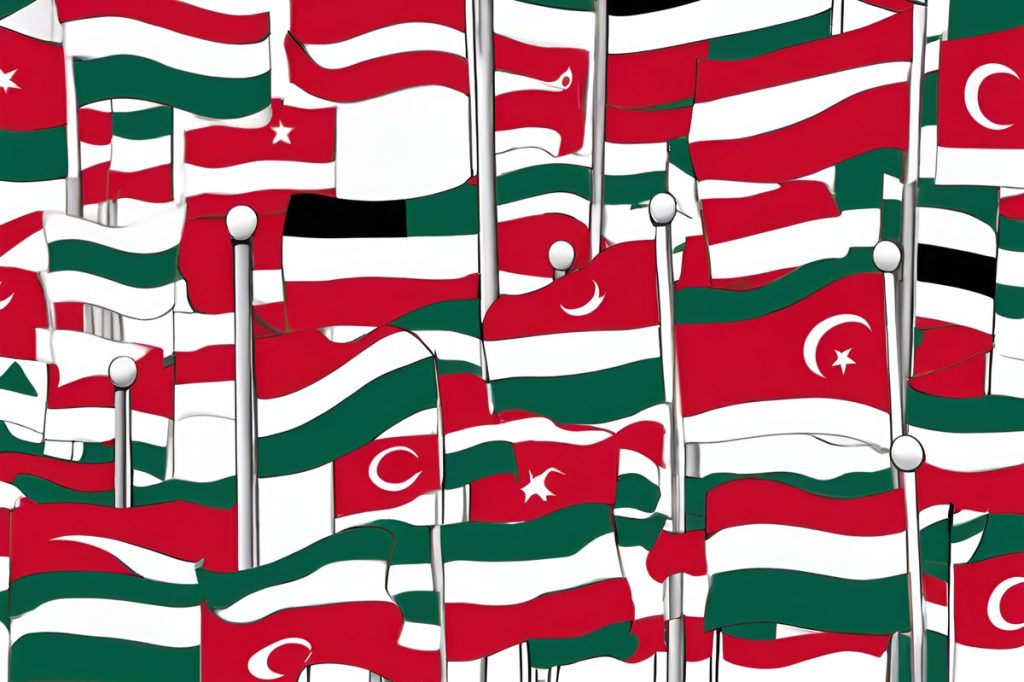Cyprus, led by Foreign Minister Kombos, shows unwavering commitment to restarting talks for reunification without preconditions, aiming for a bizonal bicommunal federation. Disagreements with Turkish Cypriots on UN resolutions and legal principles pose hurdles, but Cyprus remains steadfast in its dedication to dialogue and adherence to international law.
What is Cyprus’ stance on resuming negotiations for its reunification?
Cyprus, through Foreign Minister Kombos, affirms its readiness to restart talks for reunification without preconditions, aiming for a bizonal bicommunal federation. Efforts are hindered by disagreements with Turkish Cypriots on UN resolutions and legal principles. Cyprus maintains its commitment to dialogue and international law.
The Mediterranean island of Cyprus, divided since 1974, remains a focal point of intricate political discussions and international relations. The Foreign Minister, Constantinos Kombos, conveyed a clear message on the readiness of the Greek Cypriot administration to reinstate negotiations regarding the island’s long-standing division.
At a recent conference, Kombos provided an overview of the ministry’s progress over the last year. A key point of discussion was the Cyprus issue, a subject of considerable significance for regional stability. Kombos highlighted that President Nikos Christodoulides is not only ready but eager to commence dialogue without delay. According to Kombos, it’s the Turkish Cypriot leadership that appears to be setting pre-conditions which are hindering the process.
The Path to Negotiations: Obstacles and Aspirations
The government’s aim, as reiterated by Kombos, is to work towards a solution that would embody a bizonal bicommunal federation, reflecting political equality—a concept enshrined in numerous UN resolutions. Despite the willingness to engage, Kombos warned against adopting an approach that would sacrifice legal principles merely for the sake of breaking the current stalemate.
The approach of the two sides presents a stark contrast. The Greek Cypriot side bases its position within the bounds of UN Security Council resolutions, while it is suggested that the Turkish Cypriot side may be looking to venture outside these parameters. The appointment of Maria Holguin as the UN Secretary-General’s personal envoy and the ongoing efforts to name an EU representative underscore the international dimension of the issue and the significance of EU-Turkey relations in this context.
International Maneuvers and Property Rights Concerns
Delving further into the geopolitical intricacies, Kombos touched upon the topic of ‘TRNC’s’ efforts to gain traction on the international scene. He spoke of attempts to block the ratification of the 2022 Samarkand Agreement’s amending protocol. Despite this, instances where meetings took place in Turkey or Azerbaijan saw the invitation of the unrecognised entity, demonstrating Turkey’s influence on the Organisation of Turkic States.
Kombos took the opportunity to laud the diplomatic efforts that led to Spain and Poland withdrawing from the Anatolian Phoenix military exercise planned for June 2023. This move signifies the sensitivity and responsiveness of some international actors to the complexities of the Cyprus issue.
Tackling Usurpation: A Proactive Stance
The Foreign Minister also shed light on the sensitive subject of Greek Cypriot property rights in the northern territory controlled by Turkish Cypriots. Kombos revealed that a strategic plan has been developed and put into action. In collaboration with relevant authorities, the plan aims to inject a sense of insecurity among those involved in the unlawful acquisition of Greek Cypriot properties in occupied areas.
This novel approach signifies a shift in tactics, aiming to disrupt the established chain of property usurpation. It is a move to protect the rights of displaced property owners and reassert the government’s commitment to upholding the rule of law in the face of ongoing challenges.
The issues surrounding the Cyprus problem are deep-rooted and complex, with a history that has seen multiple attempts at resolution. As efforts continue, the commitment to finding a peaceful, legal, and fair solution remains at the heart of the Greek Cypriot side’s strategy, as highlighted by the words and actions of Minister Kombos.
What is Cyprus’ stance on resuming negotiations for its reunification?
Cyprus, through Foreign Minister Kombos, affirms its readiness to restart talks for reunification without preconditions, aiming for a bizonal bicommunal federation. Efforts are hindered by disagreements with Turkish Cypriots on UN resolutions and legal principles. Cyprus maintains its commitment to dialogue and international law.
What obstacles does Cyprus face in its path to negotiations for reunification?
Cyprus faces obstacles in the form of disagreements with Turkish Cypriots on UN resolutions and legal principles. The Turkish Cypriot side appears to be setting preconditions that hinder the process. There are also challenges related to international maneuvers, property rights concerns, and the influence of external actors like Turkey.
How is Cyprus addressing property rights concerns in the northern territory controlled by Turkish Cypriots?
Cyprus, under the leadership of Foreign Minister Kombos, has developed a strategic plan to address property rights concerns in the northern territory controlled by Turkish Cypriots. This plan aims to disrupt the unlawful acquisition of Greek Cypriot properties in occupied areas and protect the rights of displaced property owners.
What is the significance of Cyprus’ commitment to dialogue and adherence to international law in the reunification process?
Cyprus’ commitment to dialogue and adherence to international law are crucial in the reunification process as they uphold the principles of fairness, legality, and peaceful resolution. These commitments demonstrate Cyprus’ dedication to finding a just and sustainable solution to the long-standing division of the island.

